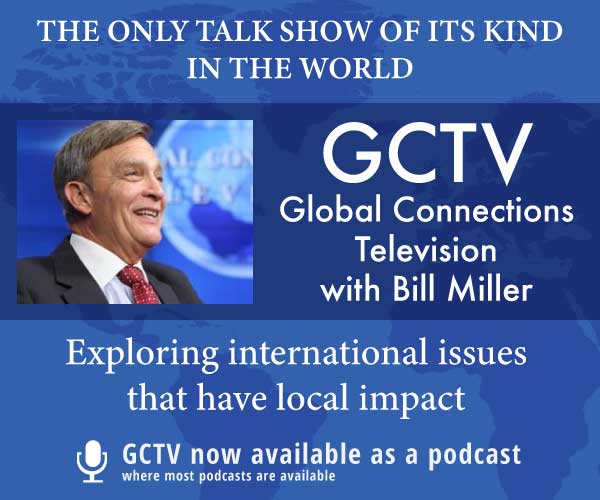
France leads the United Nations Security Council in April as its relationship with its oldest ally, the United States, feels more fragile than ever. America’s tariffs, Russia’s continuing invasion in Ukraine and even the Gaza war have pitted France and the US on opposite sides of the political fence right now.
While Jérôme Bonnafont, the brand-new French permanent representative to the UN, told journalists on April Fool’s Day that all is well with his American counterpart at the UN — Dorothy Shea, interim chief of mission — comments from politicians and the general populace in France are not sparing any kind words about Washington.
Across French media and among the public, criticism of the US under President Donald Trump have grown sharper, so much so that some people in Paris are cheering on calls for Washington to return the Statue of Liberty — a gift from France to America on July 4, 1884, and a symbol ever since of cooperation between the two trans-Atlantic countries.
Philippe Lemoine, the head of research at Hexagone, a French think tank working on public policy, said in an email to PassBlue that while most French people don’t engage much with international politics, they are expressing strong hostility toward the Trump administration and its radical foreign-policy moves.
“The dispute over Ukraine has made that much worse,” Lemoine said, “and Trump’s trade policy will only exacerbate the problem.”
He added: “I also think that many people . . . see an opportunity in the perceived American retreat from Europe because they think it may allow Europe to achieve the kind of strategic autonomy French foreign policy elites have been promoting for decades.”
But the US-French relationship has always survived tensions and emerged from them unscathed, foreign policy experts told PassBlue. The call for the Statue of Liberty to be returned seems like a full-circle moment when, in 2003, US lawmakers asked that “French fries” be renamed “Freedom fries” in reaction to France’s opposition to the US-led invasion of Iraq.
Just like Raphaël Glucksmann, a French member of the European Parliament with the Progressive Alliance of Socialists and Democrats, who asked for the Statue of Liberty to be returned, two Republican representatives, Walter Jones of North Carolina and Bob Ney of Ohio, led the call in 2003 for restaurants in Capitol Hill to drop the word “French” from their fries and breakfast toast.
Stephen Schlesinger, the American historian and journalist, based in New York City, said that even though Americans’ public opinion of France was negative during the anti-French fries period 22 years ago, both countries maintained a civil discourse in the UN. Schlesinger, who has written extensively on the institution, said that though the current sticking points for France and the US might complicate their relationship for now, they will ultimately find common ground.
“Nations that have been allies understand that even while there are moments of disagreement, they still have to continue a dialogue, otherwise they cannot get anything accomplished,” Schlesinger said in a Zoom call with PassBlue on April 8. “I don’t think either France or the United States want to have an ugly breakup.”
On April 7, French President Emmanuel Macron signed a joint statement with Egypt and Jordan condemning any plan to relocate Palestinians from Gaza, a position contrary to that of Trump, who has described the embattled enclave as “an incredible piece of important real estate” and called on neighboring countries, like Egypt, to take in the two million Palestinians suffering from the war between Israel and Hamas.
Additionally, France is pushing for a stronger European response to Trump’s tariffs but is encumbered by a lack of unity or even strategy among the 27-member bloc, experts say. Initially, the European Union threatened 50 percent tariffs on US goods, including Harley-Davidson motorcycles and Kentucky bourbon. However, the final tariffs were reduced to 25 percent, excluding bourbon. Lemoine said that France helped remove bourbon from the retaliatory measures, fearing a severe reciprocal tariff on French wine.
Ukraine remains the most divisive issue currently straining US-French relations — and, by extension, testing the longstanding partnership between the European Union and Washington. Trump tried at first to lead peace talks to end Russia’s war in Ukraine by talking only to Russia, but that tactic unsurprisingly backfired when Ukraine and the rest of Europe balked.
France, an ally of Ukraine in its fight against Russia since it fully invaded in February 2022, has been unequivocal in its rhetoric: any peace negotiations must uphold Ukraine’s sovereignty and territorial integrity without rewarding Russia’s aggression. As president of the Security Council in April, France has signaled openness to ideas from member states on how the UN could help steer the US-led negotiations with Russia and Ukraine “in the right direction.”
Richard Gowan, the director of UN affairs at the International Crisis Group, said the French are experienced diplomats, as evidenced in how they handled the US-sponsored Path to Peace resolution on the war in Ukraine in the General Assembly in February. France skillfully amended the US draft resolution to include language that forced Washington to abstain from voting on its own text because it wouldn’t approve the changes.
“They don’t mind cocking a snook at the Americans now and again,” Gowan said.
However, the same draft was approved later in the day, Feb. 24, in the Security Council, after France proposed amendments that were vetoed by Russia (who voted in favor of the draft text). Some critics have said that the US text was an appeasement to Russia as weeks later, on April 8 in the Council, Russia wielded Resolution 2774 to its advantage.
In defending his country’s latest deadly attack in Ukraine, sending cluster warheads into the city of Kryvyi Rih on April 4, Vassily Nebenzia, the permanent representative, said Russia is negotiating with Ukraine in line with the Path to Peace resolution, even as it has stalled.
Gowan said that the resolution’s approval in the Council had been a signal from Washington to Europeans that their diplomatic strategy over Ukraine at the UN had failed. The five European Council members — Britain, France, Denmark, Greece and Slovenia — had abstained in the February vote.
Yet, Russia’s manipulation of the Path to Peace resolution was rejected by France on Tuesday. “While unleashing its fury on the Ukrainian people, Russia claims to support a ceasefire,” Bonnafont said in the Council. “But what are we talking about? It is now exactly one month since Ukraine accepted the proposal for a complete and unconditional ceasefire for 30 days. This courageous response has not been followed by any real response from Russia.”
Back in France, Lemoine of Hexagone said that the main geopolitical challenge the country faces regarding Ukraine is the threat posed by Russia to the Baltic countries — Estonia, Latvia and Lithuania. “Not so much because I think that a Russian invasion of them is very likely,” he said, “but people over there are very scared of it and, as long as Europeans can’t figure out a way to address those concerns, it will be impossible for the EU to develop any kind of strategic autonomy.”
Moreover, the burning issue as to how Europe — with France — could defend the continent from a Russian threat if Trump actually withdraws the US from NATO is also challenging to foresee. Europe lacks “critical capabilities that it will take a long time to build up and this would be very costly,” Lemoine said, especially because France is in the middle of a fiscal and political crisis “that will make it extremely difficult to increase military spending in a massive way anytime soon.”
At Bonnafont’s press briefing on April 1, outlining France’s Council agenda, he offered some details, including a private meeting on April 14 regarding Minurso, the UN peacekeeping mission in Western Sahara; and open briefings on Yemen (April 15), South Sudan (April 16) and Libya (April 17). A session on April 21 is supposed to cover the recent recommendations from UN Secretary-General António Guterres on how to boost the Multinational Security Support operation (MSS) to combat gangs in Haiti, Bonnafont told PassBlue.
France’s signature debate, on April 29, will concentrate on the Mideast, during which Foreign Minister Jean-Noël Barrot is expected to preside. Macron announced on April 7 that France would host an international conference in June with Saudi Arabia to promote a two-state solution to the Israeli-Palestinian conflict.
France’s ambassador to the UN: Jérôme Bonnafont, 64
Since: March 17, 2025
Education: Graduate of the Institut d’Etudes Politiques de Paris (Sciences Po) and the École Nationale d’Administration (ENA)
His story, briefly: Bonnafont arrived in his UN post in mid-March, having most recently been the permanent representative of France to the UN in Geneva since September 2021. (In New York City, he succeeds Nicolas de Rivière, who is now France’s ambassador to Russia.) Before Geneva, Bonnafont worked on human resources policies at the Ministry of European and Foreign Affairs, after being an adviser to the prime minister, from January 2020 to July 2020. From 2015 to 2019, Bonnafont directed the North Africa and the Mideast portfolio at the ministry; from 2011 to 2012, he was chief of staff to the minister of state. He also was ambassador of France to Spain (2012-2015) and to India (2007-2011). This is his second time working at the French mission to the UN in New York, having been a counselor from 1993 to 1995. He is married and has one child.
Country Profile
Head of State: Emmanuel Macron (President)
Foreign Affairs Minister: Jean-Noël Barrot
Type of Government: Presidential constitutional republic
Year France Joined the UN: 1945
Years in the Security Council: One of the five permanent members (with Britain, China, Russia, and the US)
Population: 68.3 million
Per capita CO2 emissions (tons): 4.2
Damilola Banjo is an award-winning staff reporter for PassBlue who has covered a wide range of topics, from Africa-centered stories to gender equality to UN peacekeeping and US-UN relations. She also oversees all video production for PassBlue. She was a Dag Hammarskjold fellow in 2023 and a Pulitzer Center postgraduate fellow in 2021. She was part of the BBC Africa team that produced the Emmy-nominated documentary, “Sex for Grades.” In addition, she worked for WFAE, an NPR affiliate in Charlotte, N.C. Banjo has a master’s of science degree from the Columbia University Graduate School of Journalism and an undergraduate degree from the University of Ibadan in Nigeria.




















